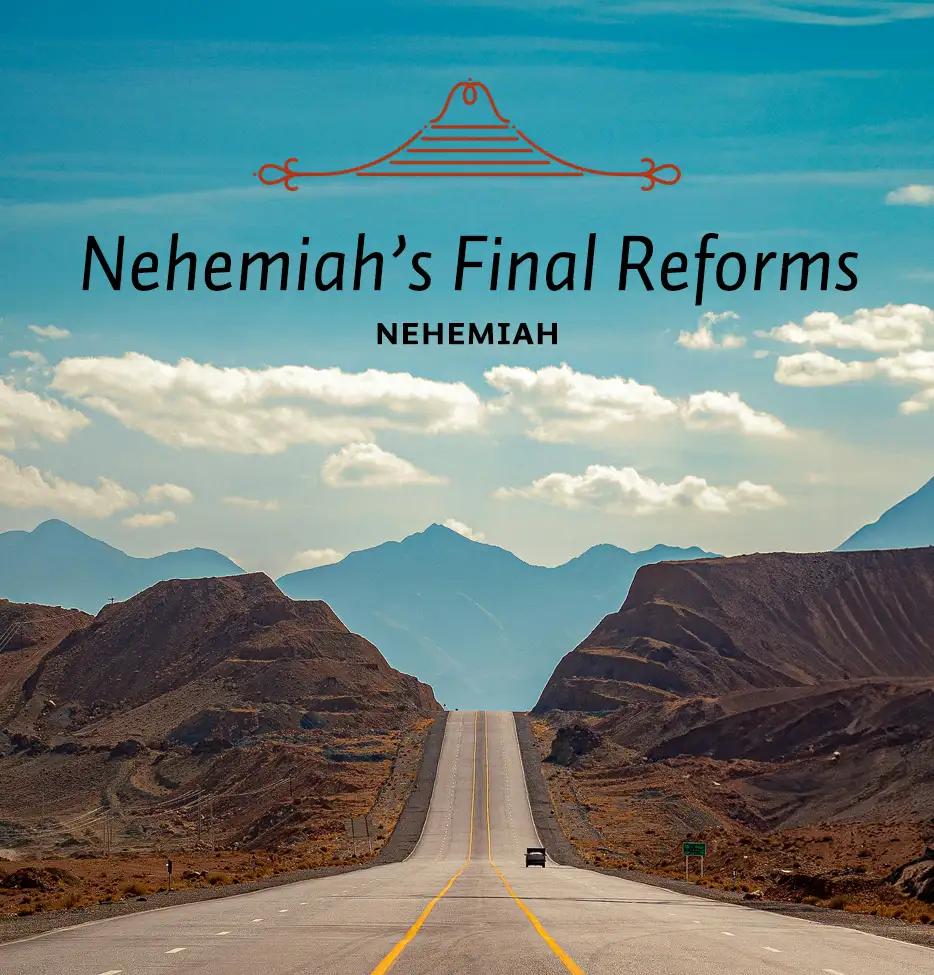But it is not just that Nehemiah had to continue his struggles into old age that is significant. It is also that he had to deal with exactly the same problems he had dealt with earlier. In the last chapter we looked at the climactic celebration in which Nehemiah, together with Ezra the priest, dedicated the wall of the newly encircled city. At the very end of that study we saw something interesting, namely, two sections dealing with: 1) the provisions made for the temple service (Neh. 12:44-47); and 2) the purification of the people by excluding from their official number all who were of foreign descent (Neh. 13:1-3). Some commentators have called these sections parenthetical. But that is not how Nehemiah viewed them. He links these sections to the dedication by using the words “at that time” and “on that day,” though what they describe was probably spread out over a period of weeks or months. It is his way of saying that the purity of the people and the religious life of the nation were the ultimate goal and the very heart of what he was striving to accomplish.
These were the problems he faced when he returned to the city some seven or twelve years later. His second governorship did not deal with a new set of problems but with the old problems. Have you ever had an experience like that, having to deal with the same old problems again and again? It is enough to grind even the best of leaders down. And there is this too. Do you remember the covenant made by the people at the time of the religious revival under Ezra, recorded in Nehemiah 10? The revival had three parts. There was a reading and exposition of the Law of God, which led to the conviction of sin (chapter 8). There was national repentance for wrongs done (chapter 9). Finally, there was a covenant in which the people promised to obey the commands of God faithfully (chapter 10). Do you remember what they covenanted to do?
There were six items:
1. The family. The people promised not to intermarry with the people of the nations about them. This was not racial snobbery or prejudice, as I pointed out earlier. It was a desire to preserve their religion and the unique quality of the spiritual life that flowed from it.
2. The Sabbath. The people promised to abstain from all commercial activity on this day, preserving it as a day to worship God and remember His blessings.
3. The temple tax. The people promised to pay the tax required of them by Exodus 30:11-16. They took it as an annual obligation.
4. Additional provisions for the temple. The people were not content merely with paying the tax for the temple but also promised to provide the temple with wood for the altar and the firstfruits of their crops and trees.
5. Dedication of the first born. This was a matter of priorities. It was a way of acknowledging that all we are and have is a gift from God and is owed to him.
6. The tithe. The final thing the people promised was to be faithful in paying tithes to God. This was the way the people provided for the temple service.
But it was exactly this that Nehemiah found to have been neglected when he returned for his second period as governor in 425 or 420 B.C. In fact, of the six items solemnly covenanted in chapter 10, the only one that does not recur in chapter 13 is the obligation to dedicate the first born to God, and that is probably because it is subsumed under the greater problem of the family and intermarriages with foreign peoples dealt with extensively in verses 22-28. How pious the people were in promising these things in the revival! How solemnly they declared: “We will not neglect the house of our God” (Neh. 10:39). But they did neglect it.
During the years of Nehemiah’s absence from Jerusalem, God sent Malachi, the last of the Old Testament prophets, to inveigh against these very abuses. Since Malachi had been calling for reform and a return to God in these very areas, it is reasonable to think that Nehemiah faced problems not only of a backslidden people but of hardened hearts as well.






